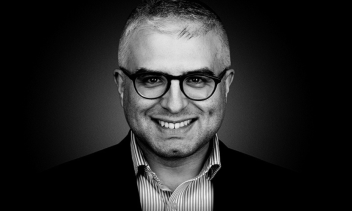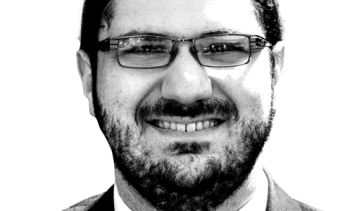This essay is the second in the author’s five-part series for 18Forty’s explorations of the origins of Judaism. The first can be found here. The entire series can be found compiled here.
The Sages of the Mishna and Gemara, commonly known as Chazal, were the great codifiers of Jewish law. The Mishna lays out halachic rules in an orderly and systematic fashion: Such is prohibited, such is permitted; this is pure, but this is impure. There is one tractate for blessings, another for the laws of Pesach. So it’s rather surprising that Chazal have nothing systematic to say about Jewish theology. You’ll find agreement on basic principles—such as a revelation at Sinai or a coming messianic age—but for the most part, one will only glean Chazal’s theology from a snippet here or a terse statement there. Some of their proclamations are cryptic, and there’s very little agreement on anything but the basics.
Such is the case with Chazal’s treatment of the idea that an Oral Torah was given at Sinai. As I noted in the introduction to this series, various texts, like the Sifrei, state that two Torahs were given at Sinai. But there are widely divergent opinions on what exactly was handed down and the interplay between the divine and human elements in the Oral Torah.
There are many sources to consider, but we’ll get a general picture by looking at just a handful.
I. The Maximalists: ‘Moshe Got It All’
First, let’s consider what I’ll call the maximalist position. The Gemara in Berachot 5a reports that the sum total of the Oral Law—up to and including the Gemara!—was given to Moshe at Sinai:
מאי דכתיב ואתנה לך את לחת האבן והתורה והמצוה אשר כתבתי להורותם, לחות – אלו עשרת הדברות, תורה – זה מקרא, והמצוה – זו משנה, אשר כתבתי – אלו נביאים וכתובים, להורותם – זה תלמוד; מלמד שכולם נתנו למשה מסיני
What is the meaning of that which is written: “[Ascend to me on the mountain and be there,] and I will give you the stone tablets and the Torah and the mitzva that I have written that you may teach them” (Exodus 24:12)? The “tablets” are the ten commandments, the “Torah” is the five books of Moses, The “mitzva” is the Mishna, “That I have written” refers to the Prophets and Writings, “That you may teach them” refers to the Talmud.
Likewise, Megillah 19b suggests that Moshe was shown all future developments in the Oral Law at Sinai:
מאי דכתיב ועליהם ככל הדברים אשר דבר ה’ עמכם בהר – מלמד שהראהו הקדוש ברוך הוא למשה דקדוקי תורה ודקדוקי סופרים, ומה שהסופרים עתידין לחדש
What is the meaning of that which is written: “[And the Lord delivered to me two tablets of stone written with the finger of God;] and on them was written according to all the words which the Lord spoke with you in the mountain” (Deuteronomy 9:10)? This teaches that the Holy One, Blessed be He, showed Moshe all the inferences that can be derived from the words of the Torah; and all the inferences that can be derived from the words of the Scribes, and also all that the Scribes were destined to introduce.
II. The Minimalists: ‘Moshe Got Only General Principles’
But Shemot Rabbah (41:6) makes pretty much the opposite claim—that Moshe only learned general principles at Sinai, not everything in the Oral Torah:
וכי כל התורה למד משה כתיב בתורה (איוב יא) ארוכה מארץ מדה ורחבה מני ים ולארבעים יום למדה משה אלא כללים למדהו הקב”ה למשה
Could Moshe have learned the entire Torah? It says (Iyov 11:9), “Its measure is longer than the land and wider than the sea”; could Moshe have learned it all in 40 days? Rather, God taught him general principles.
According to the Midrash, God taught Moshe certain principles of interpretation (we’ll discuss what those might be later), and presumably, those principles were used by later generations to derive the rest of the Oral Law.
Yet one might argue that the maximalist position in the Gemarot should not be taken at face value. Rereading the Gemara in Megillah carefully, it states that God showed Moshe everything that later rabbis would deduce. Rabbi Yom Tov Lipmann Heller, in his 17th-century commentary to the Mishna called Tosafot Yom Tov, suggests that the Gemara here might be positing that Moshe only got a glimpse of what was to come, but did not transmit it to the next generation. Halacha still unfolded via rabbinic interpretation.
One also wonders about the Gemara in Berachot’s position that even the Mishna and Gemara were revealed at Sinai. It might mean that every law in the Gemara literally came from Sinai and was passed down through the generations. But not every story or statement in the Gemara is meant to be taken literally, and it could be that the Gemara is taking a bit of poetic license here. Perhaps it is stressing that every part of the Oral Torah is imbued with the authority of Sinaitic revelation, even if composed later.
III. ‘The Torah Is Not In Heaven’
Aside from defining the scope of Sinaitic revelation, Chazal also address the role of human beings in transmitting or even shaping the Oral Torah. Many may be aware of the story of the Oven of Achnai in Bava Metzia 59a-b. In this episode, the Sages and Rabbi Eliezer vigorously debate the ritual purity of an oven. But even after God announces that the oven is pure as Rabbi Eliezer maintained, the Sages state, “Lo ba-shamayim hi – the Torah is not in heaven” (see Devarim 30:12), and contend that God doesn’t get a vote. God approves and says, “My children have triumphed over me.”
The principle of lo ba-shamayim hi also appears in the Gemara in Temurah 16a, but there it concerns what happens when laws are forgotten:
שלשת אלפים הלכות נשתכחו בימי אבלו של משה. אמרו לו ליהושע: שאל! א”ל: לא בשמים היא . . . במתניתין תנא: אלף ושבע מאות קלין וחמורין, וגזירות שוות, ודקדוקי סופרים נשתכחו בימי אבלו של משה. אמר רבי אבהו: אעפ”כ החזירן עתניאל בן קנז מתוך פלפולו
3,000 halachot were forgotten during the mourning period for Moshe. They said to Yehoshua: ask [God]! He told them: it’s not in heaven. … In a Beraita we learned: 1,700 a fortiori inferences, verbal analogies, and minutiae of the scribes, were forgotten during the mourning period for Moshe. Rabbi Abahu said: even so, Otniel the son Kenaz restored them through his sharp analysis.
This Gemara adds another layer to the idea that the Oral Torah isn’t in heaven. It doesn’t only mean that the rabbis have the prerogative to decide the law when faced with a new legal question such as the purity of an oven. Rather, once the Torah was given, it was entirely in human hands, and prophetic inquiry is verboten. When laws are forgotten, we don’t ask God, but reconstruct them through human reason.
IV. What Did Moshe Learn from Rabbi Akiva?
But perhaps the Talmudic discussion that best highlights the tension regarding the Oral Torah’s divine and human elements is found in Menachot 29b. Moshe ascends on high and finds God tying crowns to the letters in the Torah scroll. When he asks why, God shows him the classroom of Rabbi Akiva thousands of years in the future, who expounds halachot from the crowns. But Moshe is disappointed because he can’t understand what Rabbi Akiva is teaching:
הלך וישב בסוף שמונה שורות, ולא היה יודע מה הן אומרים, תשש כחו; כיון שהגיע לדבר אחד, אמרו לו תלמידיו: רבי, מנין לך? אמר להן: הלכה למשה מסיני, נתיישבה דעתו
Moshe went and sat at the end of the eighth row in Rabbi Akiva’s study hall and did not understand what they were saying. Moshe’s strength waned. When Rabbi Akiva arrived at the discussion of one matter, his students said to him: My teacher, from where do you derive this? He said to them: It is a halakha transmitted to Moshe from Sinai. When Moshe heard this, his mind was put at ease.
The Gemara is somewhat hard to understand. Why is Moshe placated upon learning that Rabbi Akiva traces his teachings back to him? Presumably, Moshe still couldn’t comprehend Rabbi Akiva’s ideas. Rashi, commenting on this passage, suggests that Moshe was appeased because once he was told the matter was transmitted at Sinai, he figured he would learn it before his death, even though he hadn’t learned it yet.
But one might alternatively suggest that Moshe was satisfied because he realized that Rabbi Akiva’s creativity stemmed from what he had transmitted. This meant that even many generations later, the halachic process remained intact. Sinai was still important. Perhaps, then, this Gemara highlights a paradox: when later rabbis teach new laws and concepts, it is as if Moshe received and transmitted them. Even modern-day applications of halacha are clothed in Sinaitic authority.
At this point, it should be clear Chazal did not speak in one voice regarding the origins and transmission of the Oral Torah. Competing and complementary views share space. Was everything in the Mishna and Gemara given at Sinai? Was it telegraphed to Moshe but not transmitted? Perhaps Moshe only learned general principles of interpretation. In many of these discussions, the rabbis have a central role in the transmission, reconstruction, and creation of the Oral Torah.
In next week’s installment, we will explore a pivotal debate between the Geonim and Rishonim about the roots of machloket and how there came to be so much disagreement about halacha.
Yosef Lindell is a practicing lawyer and one of the editors of the Lehrhaus living in Silver Spring, MD. He has a JD from NYU Law and an MA in Jewish history from Yeshiva University. Yosef’s published writing spans several genres, from science fiction to Jewish scholarship. His website is yoseflindell.wordpress.com.To receive Yosef’s weekly essays on the Origins of Judaism right in your inbox, sign up for our email list here.








